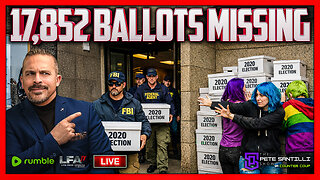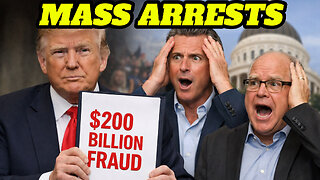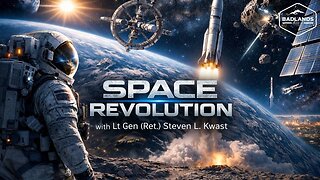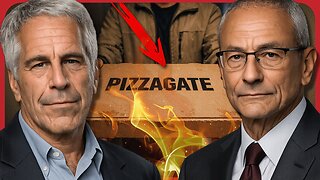Premium Only Content

Timaeus Plato
Don't forget to follow my channel for more content.
This video is perfect for putting on when going to bed, driving or while doing things around the house!
By: Plato ~ ΠΛΆΤΩΝ
Translated By: Benjamin Jowett
Full Length Audiobook Video
Timaeus Greek Τίμαιος Timaios, is one of Plato's dialogues, mostly in the form of a long monologue given by the title character Timaeus of Locri, written c. 360 BC. The work puts forward speculation on the nature of the physical world and human beings and is followed by the dialogue Critias.
Participants in the dialogue include Socrates, Timaeus, Hermocrates, and Critias. Some scholars believe that it is not the Critias of the Thirty Tyrants who is appearing in this dialogue, but his grandfather, who is also named Critias. It has been suggested that Timaeus influenced a book about Pythagoras, written by Philolaus.
The dialogue takes place the day after Socrates described his ideal state. In Plato's works such a discussion occurs in the Republic. Socrates feels that his description of the ideal state wasn't sufficient for the purposes of entertainment and that "I would be glad to hear some account of it engaging in transactions with other states".
Hermocrates wishes to oblige Socrates and mentions that Critias knows just the account to do so. Critias proceeds to tell the story of Solon's journey to Egypt where he hears the story of Atlantis, and how Athens used to be an ideal state that subsequently waged war against Atlantis. Critias believes that he is getting ahead of himself, and mentions that Timaeus will tell part of the account from the origin of the universe to man.
Critias also cites the Egyptian priest in Sais about long term factors on the fate of mankind:
"There have been, and will be again, many destructions of mankind arising out of many causes; the greatest have been brought about by the agencies of fire and water, and other lesser ones by innumerable other causes. There is a story that even you [Greeks] have preserved, that once upon a time, Phaethon, the son of Helios, having yoked the steeds in his father's chariot, because he was not able to drive them in the path of his father, burnt up all that was upon the earth, and was himself destroyed by a thunderbolt. Now this has the form of a myth, but really signifies a declination of the bodies moving in the heavens around the earth, and a great conflagration of things upon the earth, which recurs after long intervals.
Summary By: Wikipedia
-
 LIVE
LIVE
LFA TV
21 hours agoLIVE & BREAKING NEWS! | WEDNESDAY 2/11/26
1,222 watching -
 19:50
19:50
Stephen Gardner
2 hours agoBAD NEWS for Democrats as THOUSANDS of Arrests Planned
5.47K24 -
 LIVE
LIVE
Badlands Media
16 hours agoSpace Revolution Ep. 5
1,509 watching -
 1:25:09
1:25:09
Redacted News
2 hours agoPizzagate is MUCH WORSE than we thought, Epstein documents just changed everything | Redacted News
121K110 -
 1:41:53
1:41:53
Russell Brand
4 hours agoCanada Reels from Its Deadliest School Shooting in Decades as the Epstein Files Escalate — SF681
116K32 -
 1:22:15
1:22:15
vivafrei
3 hours agoPam Bondi "Girl-Boss" Fail! "Gunperson in Dress" Mass Shooting in Canada! Trump Immigration W & MORE
48.3K50 -
 38:24
38:24
The Mel K Show
2 hours agoMel K w/ Dr. Bruce Fong & Ron Oliver - The Testosterone Crisis is Real! | 2-11-26
5.49K1 -
 1:24:09
1:24:09
The Quartering
4 hours agoPAM BONDI MELTDOWN, TRANS MONSTER TAKES 10 LIVES, MAMDANI FALLING APART & EPSTEIN REVEAL!
142K56 -
 5:03:51
5:03:51
Dr Disrespect
6 hours ago🔴LIVE - DR DISRESPECT - ROCKET LEAGUE PRO TRYOUTS (Am I Ready?!)
71.3K7 -
 LIVE
LIVE
freecastle
6 hours agoTAKE UP YOUR CROSS- The LORD your GOD is with you, the Mighty Warrior who SAVES!
153 watching